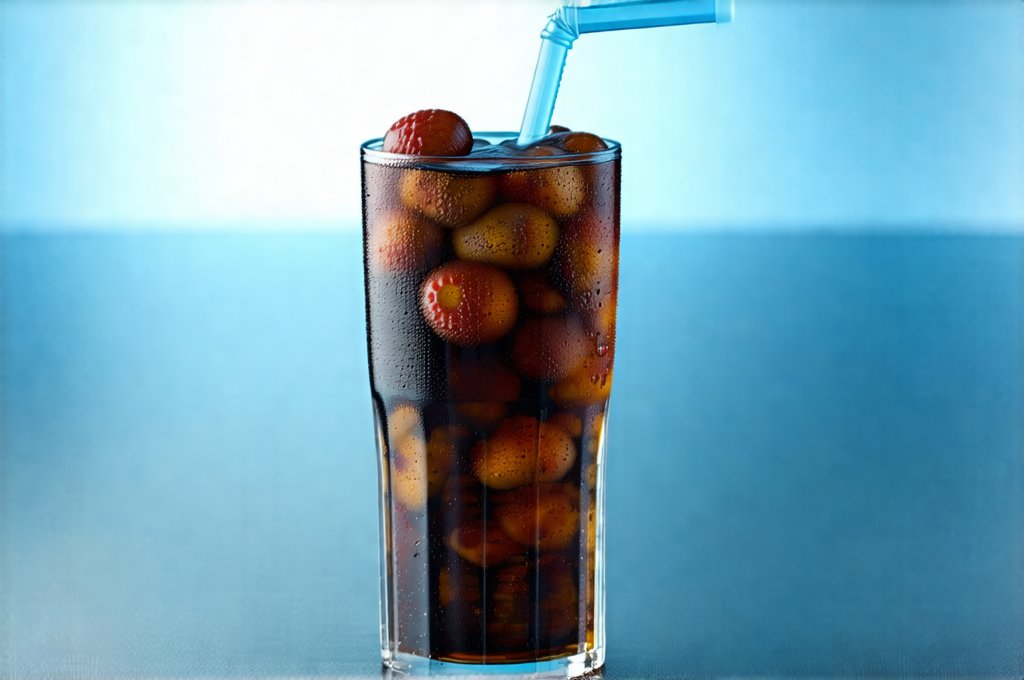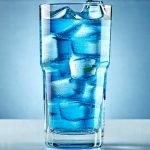The seemingly simple act of enjoying a fizzy drink can be surprisingly complex when we consider its potential impact on our digestive system. Carbonated beverages are ubiquitous in modern diets – from sodas and sparkling water to flavored seltzers and even some juices – making understanding their relationship with gut health crucial for many individuals. While not inherently harmful to everyone, the characteristics of carbonation, combined with common ingredients found in these drinks, can exacerbate existing gastrointestinal issues or contribute to discomfort in sensitive individuals. This article will delve into the ways carbonated drinks might affect your gut, exploring the science behind the potential problems and offering insights for managing consumption.
Many people experience temporary bloating or gas after drinking carbonated beverages, a normal physiological response. However, for those with underlying conditions like Irritable Bowel Syndrome (IBS), Gastroesophageal Reflux Disease (GERD), or sensitivities to certain food components, these effects can be significantly more pronounced and disruptive. It’s essential to differentiate between occasional discomfort and persistent symptoms that warrant medical attention; this article aims to provide information about potential mechanisms at play so you can better understand your own body’s response to carbonation and make informed choices regarding your diet. We will explore the specific factors that may contribute to gut issues, focusing on both the physical effects of bubbles and the chemical composition of common carbonated drinks.
The Mechanics of Carbonation & Gut Discomfort
Carbonation introduces gas – primarily carbon dioxide – into the digestive system. This isn’t inherently problematic for a healthy digestive tract which is designed to handle some degree of gas production through natural processes like fermentation in the colon. However, excessive or rapid introduction of gas can lead to several uncomfortable sensations. – Bloating occurs when excess gas stretches the stomach and intestines. – Gas pain arises from pressure on sensitive nerves within the gut. – Increased flatulence is a common consequence as the body attempts to expel the extra gas. The speed at which carbonation affects individuals varies based on factors like individual sensitivity, the volume of liquid consumed, and whether it’s ingested quickly or slowly.
The physical effect isn’t always the sole culprit. Carbonated drinks often encourage rapid swallowing, leading to increased air ingestion – a phenomenon called aerophagia. This further contributes to gas buildup in the digestive tract. Furthermore, carbonation can affect lower esophageal sphincter (LES) function, the muscle that prevents stomach acid from flowing back into the esophagus. A weakened or relaxed LES is a hallmark of GERD, and carbonated beverages may temporarily exacerbate symptoms by increasing pressure within the abdomen, potentially forcing acidic contents upwards. This can lead to heartburn, regurgitation, and even damage to the esophageal lining over time.
Beyond the physical effects, many carbonated drinks contain ingredients that can directly impact gut health. High fructose corn syrup (HFCS), artificial sweeteners, and citric acid are frequently added for flavor and preservation but may contribute to digestive upset in susceptible individuals. These additives aren’t always well-tolerated by the gut microbiome, potentially disrupting its delicate balance and contributing to inflammation. In essence, it’s not just the bubbles causing problems; it’s often a combination of carbonation and the drink’s composition. Understanding how gut healing can impact sensitivities is key to managing dietary choices.
Specific Conditions & Carbonated Drinks
Individuals with pre-existing gastrointestinal conditions are particularly vulnerable to the negative effects of carbonated beverages. For those diagnosed with Irritable Bowel Syndrome (IBS), even small amounts of carbonation can trigger symptoms like bloating, abdominal pain, diarrhea, or constipation. The increased gas production and potential for intestinal distension can significantly worsen IBS flare-ups. Similarly, people with Small Intestinal Bacterial Overgrowth (SIBO) may find that carbonated drinks exacerbate their symptoms as the extra gas feeds the bacteria in the small intestine, leading to increased fermentation and bloating.
Gastroesophageal Reflux Disease (GERD) sufferers often experience worsened heartburn and acid reflux after consuming carbonated beverages. As previously mentioned, carbonation can relax the lower esophageal sphincter, allowing stomach acid to flow back into the esophagus. This effect is compounded by the fact that many sodas are acidic themselves, further irritating the esophageal lining. Even seemingly benign sparkling water can contribute to GERD symptoms if consumed in large quantities. It’s crucial for individuals with these conditions to be mindful of their intake and consider alternatives. If you find your gut is consistently sensitive, exploring gut sensitivities might offer some insight into underlying causes.
Finally, people with functional dyspepsia (chronic indigestion) may experience increased discomfort after drinking carbonated beverages. While the exact mechanisms are still being researched, it’s believed that carbonation can exacerbate visceral hypersensitivity – an increased sensitivity to normal digestive processes – leading to feelings of fullness, bloating, and nausea. In all these cases, recognizing individual tolerance levels is key; some may be able to tolerate small amounts of certain carbonated drinks without issue, while others must avoid them altogether. Building support networks can also make navigating these challenges easier.
Navigating Carbonation: Strategies for Sensitive Individuals
If you suspect carbonated beverages are contributing to your gut issues, several strategies can help manage the situation:
- Reduce Intake: The most straightforward approach is to simply drink less. Start by limiting how often you consume carbonated drinks and reducing portion sizes.
- Choose Wisely: Opt for low-sugar or sugar-free options whenever possible. Avoid drinks with artificial sweeteners if these trigger symptoms for you. Plain sparkling water may be better tolerated than sugary sodas, but still consumed in moderation.
- Sip Slowly: Drinking slowly can minimize air ingestion and reduce the rapid introduction of gas into your digestive system.
- Pair with Food: Consuming carbonated beverages with a meal can slow down digestion and potentially lessen their impact on the gut.
Beyond these immediate adjustments, consider tracking your symptoms in relation to your carbonated drink consumption. A food diary can help you identify specific triggers and understand your individual tolerance levels. For example, you might discover that you tolerate plain sparkling water without issue but experience bloating after drinking cola. Recognizing when cold weather might exacerbate symptoms is also useful.
Understanding Alternative Beverages & Gut Health
Fortunately, numerous alternatives exist for staying hydrated and enjoying flavorful beverages without exacerbating gut issues. Water is always the best choice for hydration. Infused water – adding slices of fruit or herbs to water – offers a refreshing taste without carbonation or added sugars. Herbal teas, such as peppermint or ginger tea, can also aid digestion and soothe discomfort (though be mindful that some herbal teas may have laxative effects).
Kombucha, a fermented tea drink, is often touted for its probiotic benefits, which could support gut health. However, kombucha is naturally carbonated and contains small amounts of sugar, so it should be consumed cautiously by individuals with sensitive digestive systems. Fermented foods like yogurt or kefir (without added sugars) are excellent sources of probiotics that can promote a healthy gut microbiome. Finally, smoothies made with fruits, vegetables, and plant-based milk offer hydration and essential nutrients without the potential downsides of carbonation.
When to Seek Professional Help
While managing your diet can often alleviate mild digestive discomfort, it’s crucial to seek professional medical advice if symptoms are persistent, severe, or interfere with your daily life. Don’t self-diagnose; a healthcare provider can accurately assess your condition and rule out underlying medical issues. – If you experience chronic bloating, abdominal pain, diarrhea, or constipation, consult a doctor. – If you suspect GERD, seek evaluation to prevent esophageal damage. – If carbonated beverages consistently trigger severe symptoms despite dietary modifications, further investigation may be necessary. A gastroenterologist can perform tests to identify the cause of your digestive issues and recommend appropriate treatment options. Remember, proactive healthcare is essential for maintaining optimal gut health. Sometimes even artificial flavors contribute to underlying problems, so awareness is key. And remember that caffeine can also play a role in gut health.


















